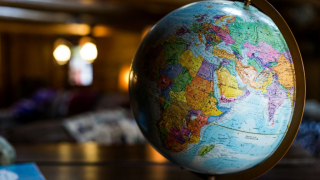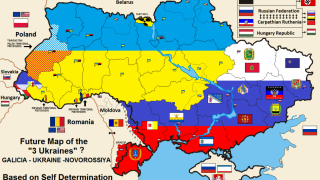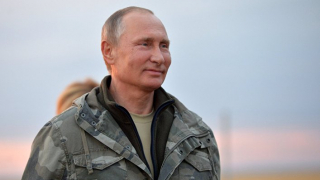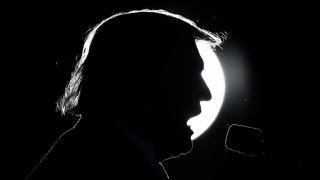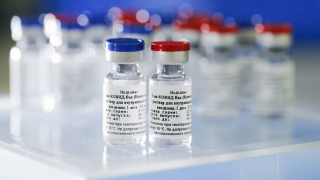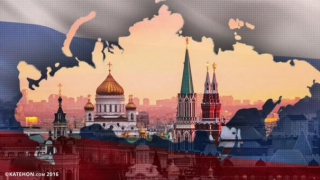Independent Russia
The Crimea issue
The United States has always sought to take control of Russia. The United States has weakened its foreign policy in Europe and increased its influence in the Caucasus and the Middle East. As it turned out, such actions had little deterrent effect on Russia. The United States then turned its attention to the forgotten Ukraine. It seemed that the events of 2004 had already passed and the situation in the neighboring state had become loyal to Russia. However, a new turbulence awaited the world. In 2013-2014, dramatic changes of power occurred in Ukraine. In 2014, as a result of these events, Crimea broke away from Ukraine and joined Russia. This event resulted in a modern sanctions package against our country.
Eight years of strained relations resulted in the imposition of 2,754 sanctions. In response to the West's actions, mirror restrictions were imposed and a package of domestic political and economic measures was developed. The government opted for a policy of import substitution. Deficit goods were supplied through transit countries. This approach allowed Russia's allies to open new food production facilities on their territory, the import of which was prohibited by EU countries and the United States.
The West hoped that the new sanctions would significantly weaken Russia. However, their expectations were not met. Neither the political system, the economy nor the banking sector suffered enough to cause a default or hyperinflation in the country.
A new beginning
Sanctions lists against Russia were significantly expanded in 2022. The special military operation in Ukraine gave the West a unique opportunity to use new leverage against the State.
Thus, after the special operation began, 7,796 revolutionary sanctions were imposed on Russia. Currently, the sanctions package consists of 1,550 restrictions. Not surprisingly, the innovations had more serious consequences for the Russian Federation.
The Russian government immediately engaged in a “fight” with the West. It was important to understand that to counter the restrictions it was necessary to react quickly and, most importantly, effectively. Counter-sanctions should have the same destructive effect as the measures of Western “partners”.
A world without Russian resources
Perhaps the most acute issue on the world stage is the sale of Russian energy resources. Russian President Vladimir Putin has forced Russian natural gas importing countries to open ruble accounts in Russian banks and pay for natural gas supplies in rubles.
These measures sowed confusion in Europe. Initially, all countries rejected Russia's demand. They feared it would neutralize the effect of the economic restrictions imposed.
Disagreements arose among European states. Above all, there were concerns about possible security of supply problems caused by the current high level of dependence on Russia. These difficulties are reflected in the issue of paying for natural gas in rubles and opening ruble accounts in Russian banks, as well as in the issue of stopping energy purchases from Russia altogether.
Some countries have refused to switch to paying for Russian gas in rubles. Russia, in turn, stopped supplying natural resources to Poland, Bulgaria and Finland, which rejected the request.
The United States was not left out. The State refused to import Russian oil. This decision triggered a steady rise in fuel prices. In June the price of a gallon of gasoline topped $5. And in California, where fuel always costs more than $6.4. At the same time, prices continue to rise.
Raw materials from U.S. strategic reserves allowed fuel prices to fall slightly in early April. The U.S. president claims that the rise in gasoline prices in the country is due solely to events in Ukraine.
Certainly, these states have been able to exploit alternative means of energy supply. However, Russia has made it clear that when the time comes, it will not hesitate to use its energy weapon. Moreover, it is clearly difficult for European countries to reduce their heavy dependence on Russia in such a short period of time.
Despite the refusal of some States to accept Russia's terms, there are no problems with revenues from natural gas and oil. Gazprom's announcement shows that about half of the 54 small, medium and large companies that have entered into agreements with Gazprom have opened ruble accounts in order to purchase natural gas from Russia. This shows that Russia still has considerable influence in the sector and will continue to use its trump card in the energy field.
Funding restrictions
The West has tried to make it difficult for some large Russian companies to operate. States have imposed sectoral sanctions, which involve restrictions on all transactions, financing and other operations involving new debt due in more than 14 days and new shares. Major Russian companies affected by the restrictions include: Gazprombank, Rosselkhozbank, Alfa Bank, Moscow Credit Bank, Gazprom, Gazprom Neft, Transneft, Rostelecom, RusHydro, ALROSA, Sovcomflot, and Russian Railways.
The Russian side was expected to act decisively. Several measures were taken to impose retaliatory restrictions on hostile States.
For example, a decree by Russian President Vladimir Putin stipulated that Russian companies can pay debts to foreign creditors only in rubles under a special procedure. A temporary procedure was also introduced for Russian organizations, the Russian Federation, its constituent entities and municipalities to fulfill their obligations on loans and financial instruments to foreign creditors from countries that have committed “hostile acts” against Russia. Payments on such obligations will be made in rubles to a special account opened at the request of the debtor at a Russian bank or central depository in the name of the foreign creditor (type C account).
A ban has also been introduced on granting loans and credits in rubles to persons on the list of hostile states without the permission of the Government Commission for the Control of Foreign Investments. Persons may be registered in these states, carry out prevailing economic activities there and predominantly profit from them. This prohibition also applies to controlled entities, regardless of where they are registered. However, it does not apply to foreign persons controlled by Russian persons, provided that such control is reported to the tax authorities.
These decisions have strengthened the ruble's position not only in the domestic market, but also abroad. The West must convert its currency into Russian rubles. In this way, Western countries significantly support our national currency. The borrowing ban, in turn, deprives the West of the possibility of obtaining money from Russia.
Export ban
The West has imposed restrictions on imports of high-tech products. Russia has responded to these actions by drawing up its own list of goods that cannot leave the country.
Thus, as of March 10, 2022, it is prohibited to export from Russia technological, telecommunications and medical equipment, vehicles, agricultural machinery, electrical equipment, lumber, railroad cars and locomotives, and turbines. In addition, restrictions have been imposed on exports of metal and stone processing machinery, consoles and panels, sugar and grain. The decision will remain in effect until the end of 2022.
Many goods are banned from export to all foreign countries, with the exception of Eurasian Economic Union (EEU) member states, Abkhazia and South Ossetia. However, temporary export permits can be granted for goods included in government decrees by a government decision.
Such actions improve the movement of the above-mentioned goods in friendly territories. In addition, this measure will help protect the domestic food market in the face of external restrictions. This strategy has some disadvantages. For example, it deprives Russian entrepreneurs of the opportunity to earn a living in foreign exchange markets.
Getting it right
According to the Government Decree of March 29, 2022, a list of groups of goods has been approved in relation to which certain provisions of the Civil Code of the Russian Federation on the protection of exclusive rights to the results of intellectual activity cannot be applied. In this regard, the absence of the consent of the owner of the right to use the trademark for the importation into the territory of Russia of the original goods specified in the list does not constitute an infringement of the exclusive rights of the owner of the right to the trademark.
This regulation allows, against the will of the West, certain products to enter the country without the owner's permission. This smart move helps stabilize the country's import turnover.
Secure population
As part of the opposition to Western aggression, the development of the domestic market is also crucial. The United Russia political party has prepared a new package of measures to make the Russian economy more sustainable in the face of sanctions. All party institutions have been involved in the creation process.
One of the most important areas of development is ensuring the stability of drug production and import substitution. Work is currently underway on domestic production of pharmaceuticals. To fully implement this strategy, advance supply is needed so that Russian warehouses and clinics have the necessary stocks of drugs.
Dmitry Khubezov, coordinator of the popular “Human Health” program of “United Russia”, chairman of the State Duma Committee for Health Protection, stressed the importance of localizing the production of medical equipment and setting in law the State order for them, so that the manufacturer is aware of the exact amount of medical equipment to be sold.
“United Russia” also made proposals for supporting agricultural producers and food security. The Party asked that consideration be given to the issue of allocating additional funds from the federal budget for the fodder and harvesting campaign.
The development of adequate funding for the subprogram on horticultural crop breeding and seed production under the federal science and technology program also seems important for economic stability. It is also necessary to amend the Public Procurement Act. These measures will enable regional agricultural producers to prioritize supplying their products to social and educational institutions located in their territories.
From the strategic point of view, it is necessary to properly take care of the scientific manpower and personnel, to prevent specialists from going abroad, because the West will try to continue the brain drain from Russia.
***
Russia, as a strong player on the world political stage, is constantly under attack by the West. The special military operation in Ukraine has given foreign countries an excellent excuse to pressure Russia with a new sanctions package. However, it is mainly the West that is suffering in this battle. Russia's counter-sanctions are showing a positive trend and have improved the situation inside the country. The crisis conditions have encouraged the development of new projects in the country.
Russian President Vladimir said that the Russian economy is dealing with the blow of sanctions with dignity. All major macroeconomic indicators can confirm that the economy is overcoming the restrictions.
In the West, however, the situation is not so rosy. Dependence on our energy resources puts it in an awkward position. In America, fuel prices are rising, Europe cannot find alternative suppliers and is beginning to conduct operations in rubles. Restrictions on loans and mortgages deprive them of Russian money. Western sanctions hit them again.
Original column by Katehon Editorial Board
Translation by Costantino Ceoldo


